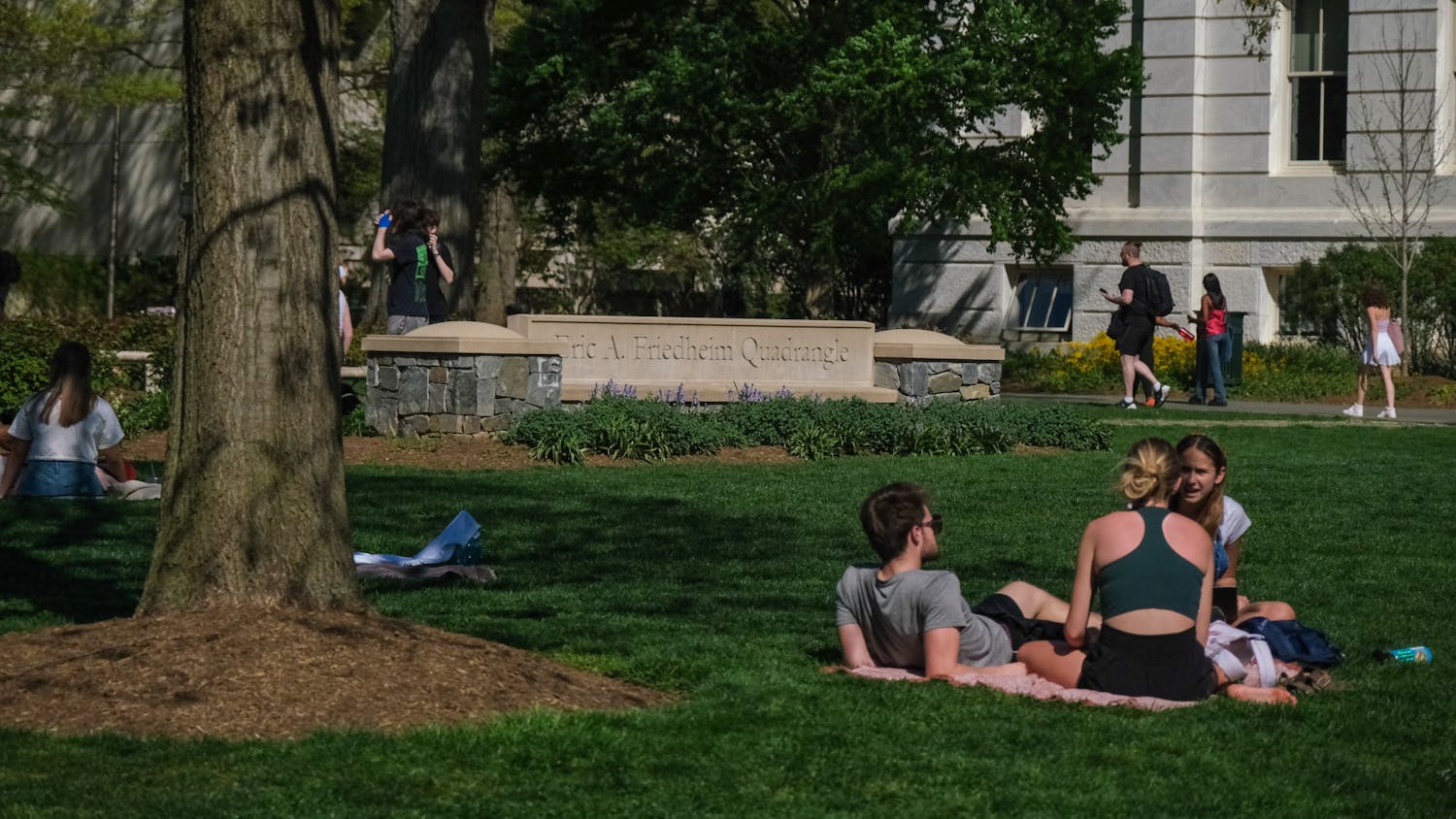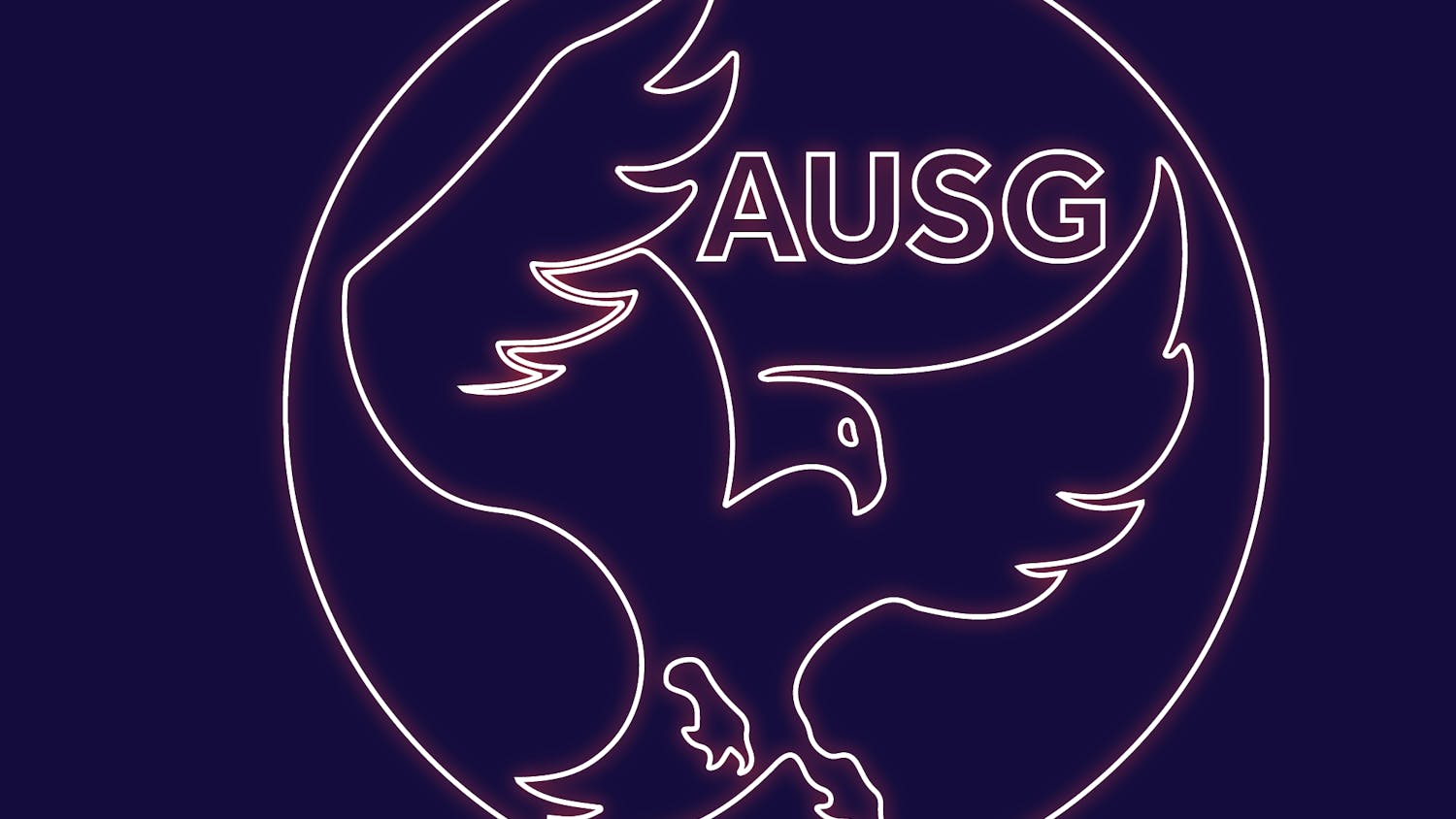The most common age for mental health issues to arise is between 18 and 25, according to AU Counseling Center Director Wanda Collins.
The statistic is not surprising to many AU students.
Diane Beyers, a freshman in the School of Public Affairs, said she knows people who are battling depression.
Tricia Haynes, a sophomore in SPA, said she used to dance so she knew people who struggled with eating disorders.
Mike Mineo, a freshman in the School of International Service, said he fortunately does not know of anyone fighting either condition or other mental illnesses.
"It's a sharp statistic," Haynes said, "but it doesn't surprise me, knowing the change we as college students, and not as college students, go through."
For students and college counseling centers, the challenge seems not to be accepting the prevalence of mental health issues, but rather acquiring adequate funding and staffing.
Ten percent of 391 center directors surveyed by the Association for University and College Counseling Center Directors reported their budgets were cut in the 2007-2008 academic year. Many centers had one staff member for every 1,952 students. The ideal ratio is 1 to 1,500.
The AU center is adequately staffed and has not faced budget reductions, Collins said. She is not worried about future cuts, since the university understands the importance of the office's work and its impact on students.
Students who receive counseling are six times less likely to commit suicide, according to a Journal of American College Health study. The majority of students who commit suicide did not receive counseling services.
However, according to some students, the Counseling Center would be their second step of action if they were worried about a friend.
Steve Osisek, a freshman in SPA, said he would first try to help a struggling friend by himself. If he could do nothing more to help him, he would suggest the Counseling Center. If the friend did not improve, Osisek said he would consider telling the Center about the problem and suggesting that staff look in on the friend.
Haynes said she questioned the center's ability to offer quality care.
Sarah McGee, a junior in the Kogod School of Business, said she would definitely recommend a friend to the Counseling Center.
"As a friend, I can only offer so much help, but there's definitely someone [at the Counseling Center] who can help," she said. "I don't think the Counseling Center is readily known. It's a hidden treasure."
The center includes eight professional staff members, four pre-doctoral interns and 20 counselors-in-training in doctoral programs.
For no charge, the team helps the 7-to-8 percent of AU students who visit the office with consultations, individual and group counseling, emergency appointments and referrals, Collins said in an e-mail.
Emotional and mental health concerns, including depression, anxiety and grief, are 39 percent of the issues students bring to the Counseling Center, Collins said. Relationship and identity concerns make up 14 percent. Family concerns, such as parents' divorce, family conflict or significantly ill relatives, make up 11 percent.
Despite financial challenges universities face, mental health issues are gaining national attention as a result of the shootings at Virginia Tech and Northern Illinois University, she said.
"The upside of all this media coverage about college mental health has been that people are more likely to refer students to get help when needed," Collins said. "This is a good thing."
You can reach this staff writer at landerson@theeagleonline.com.




